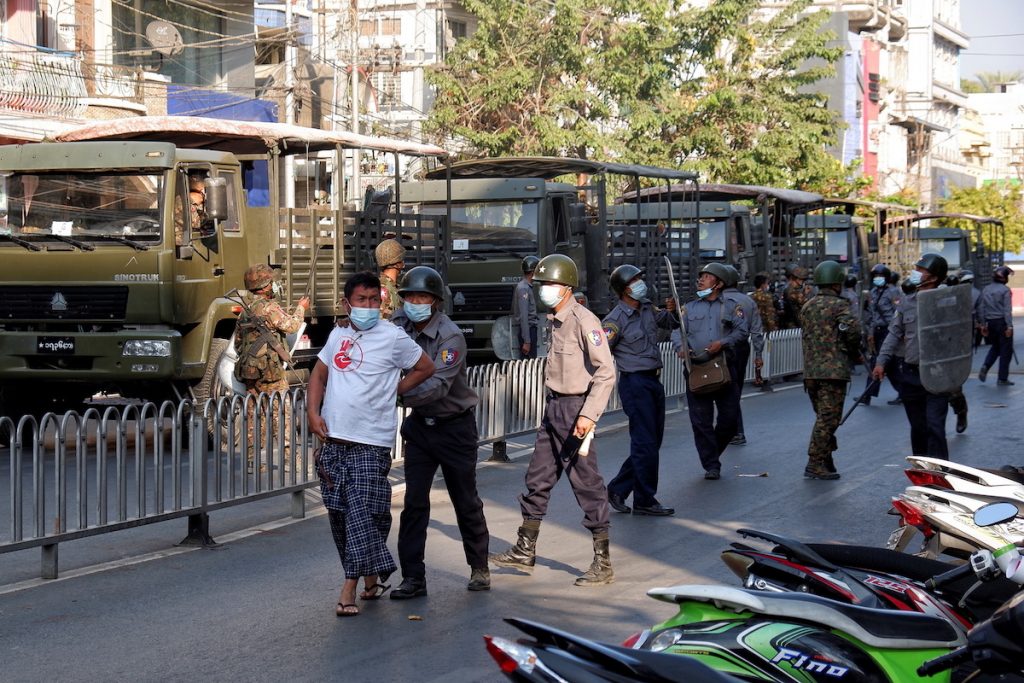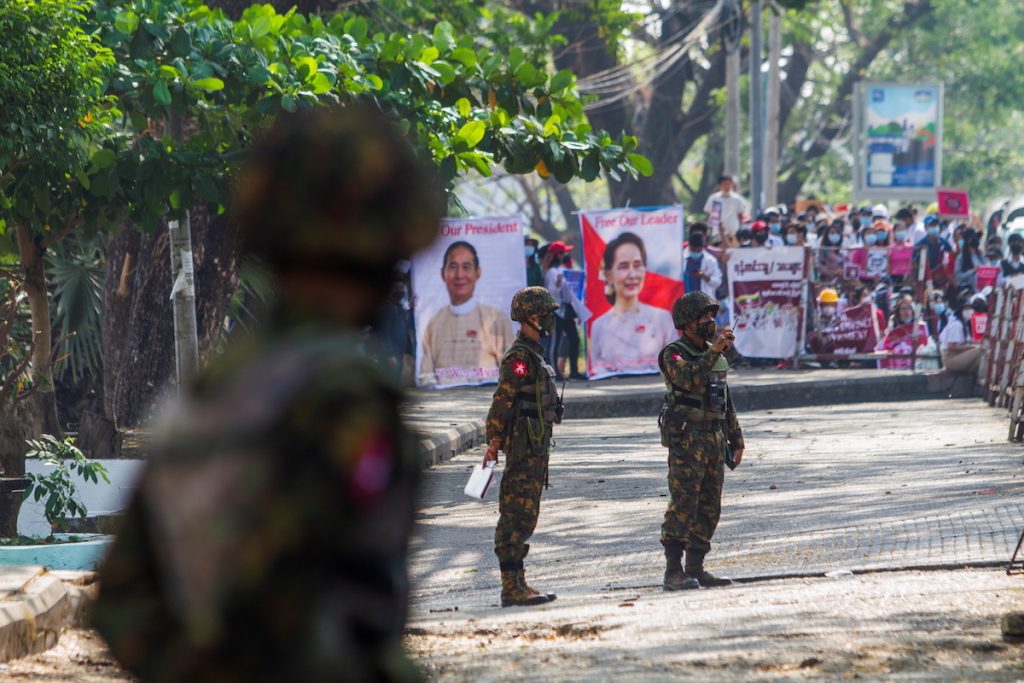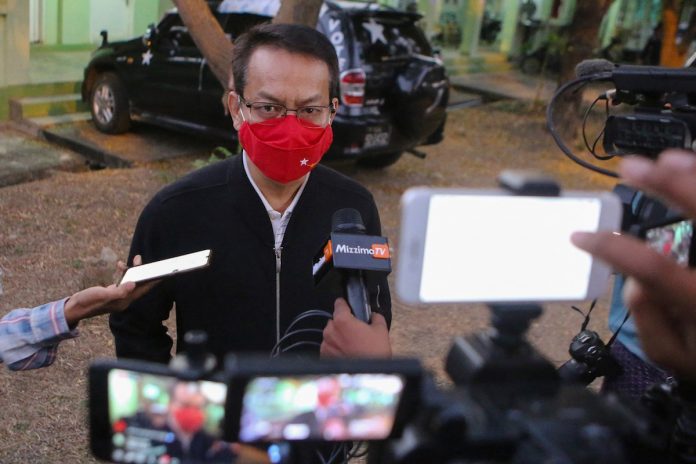Since conducting a coup d’état, Myanmar’s military junta has arbitrarily detained journalists, threatened others into hiding, and dictated proposed legislation that would severely curb media freedoms, a rights group has said.
Via a statement, Fortify Rights said that the junta has arbitrarily arrested or detained at least nine journalists since Feb. 1 when the military first took control.
On Feb. 14, the military detained overnight five Myanmar journalists covering a crackdown by security forces during a protest in Myitkyina, Kachin State.
“We were kept in a prison transport vehicle . . . We were detained at 8:45 p.m. and let go the next day at around 10:30 a.m.,” one of the journalists told Fortify Rights the day after the military released him. “[When released], the soldiers explained that we were detained because we disclosed information about the crackdown and how many military and police were there.”
The detained journalists included members of 74 Media, Mizzima News, and Eternally Peace News Network.
According to one of the journalists who spoke to Fortify Rights, soldiers released all five without charge and forced them to sign a document saying they would not violate the junta’s ban on gatherings of five or more people or the nighttime curfew issued on Feb. 8. The authorities also confiscated the journalists’ cameras and returned them upon release, the rights group said.
State security forces detained at least four other journalists since the Feb. 1 coup, according to the Assistance Association for Political Prisoners (AAPP). The junta reportedly released all the journalists except freelance journalist Shwe Yi Win, who police allegedly arrested on Feb. 11 in Pathein, the capital city of Ayeyarwady Region. Her mother told the Irrawaddy Burmese on Feb. 12 that two women police officers took her daughter, and she has no information on her whereabouts. As of Feb. 18, she remains in detention according to the AAPP.

The junta’s arrests and detentions of journalists have created a fearsome chilling effect on working journalists, said Fortify Rights. The rights group documented how several members of the press in the Yangon region, Rakhine State, and Kachin State went into hiding or avoided staying at their homes out of fear since the coup began.
“I am not staying at home,” one journalist told Fortify Rights, name withheld for security. “I have not slept at home for two weeks, since Feb. 2. Last night, police came to the neighborhood where I’m hiding. They didn’t come where I was [staying], but I could see them in the streets.”
An editor-in-chief of a Myanmar media organization told the rights group that 10 of his staff were in hiding, including editors and reporters. “The military government should not try to stop journalists from doing our jobs. Reporting the current situation is our job. It is our duty,” the editor-in-chief said.
Another journalist told Fortify Rights that members of his newsroom do not sleep at home out of fear of arrest: “We are afraid that the military intelligence will come and get us at night.”
On Feb. 16, the military junta’s executive body, the State Administrative Council (SAC), held its first press conference. Deputy Minister for Information Zaw Min Tun reportedly spoke to media, saying the military is taking “necessary measures according to the law if media reports violate the law.” He continued to tell the press conference, “I can’t promise not to take any action against the media.”

Fortify Rights said that before the coup, the military as well as the National League for Democracy (NLD)-led government were responsible for unlawful restrictions on freedom of expression and media freedoms.
Since Feb. 1, the military junta also dictated a raft of proposed legislation that would severely restrict fundamental rights, including press freedoms.
On Feb. 9, the SAC sent a draft cyber security law to telecommunications operators, requesting input by Feb. 15. If enacted, the bill would effectively criminalize criticism of the junta, with penalties of up to 10 million Myanmar Kyat (US$7,000) and/or up to three years in prison for each offense.
Furthermore, on Feb. 11, the Myanmar Ministry of Information sent a letter to the Myanmar Press Council — an independent media body — ordering media to cease “falsely” referring to the junta as a “coup government” and said doing so violates the country’s News Media Law and Printing and Publishing Law.
“It’s a bad policy,” a Myanmar journalist-in-hiding told Fortify Rights on Feb. 13. “It’s a violation against the press. We have to write the truth and say [the military] took power from the people.”
The military also blocked access to key social media platforms, such as Facebook and Twitter, and suspended internet access nationwide from 1 a.m. to 9 a.m. since Feb. 15.









